Ever caught your dog eyeing your dinner with those big, hopeful eyes? It’s tough to resist sharing a bite with your furry friend. But before you do, it’s crucial to know which human foods are safe for dogs and which could be harmful—or even downright dangerous.
Let’s review 33 people’s foods dogs can and can’t eat and how they affect our best companions. Make sure that the treat you’re about to toss is a good idea!
Highly Beneficial Foods for Dogs
Blueberries 🫐

Blueberries are antioxidant powerhouses, combating free radicals that can cause cellular damage. They’re also rich in fiber and vitamin C. Their small size makes them perfect for training treats or a healthy snack.
Salmon 🐟

Cooked salmon is excellent for dogs, providing omega-3 fatty acids that support the immune system and reduce inflammation. Never feed raw or undercooked salmon, as it may contain parasites causing salmon poisoning disease, which can be fatal if untreated.
Carrots 🥕
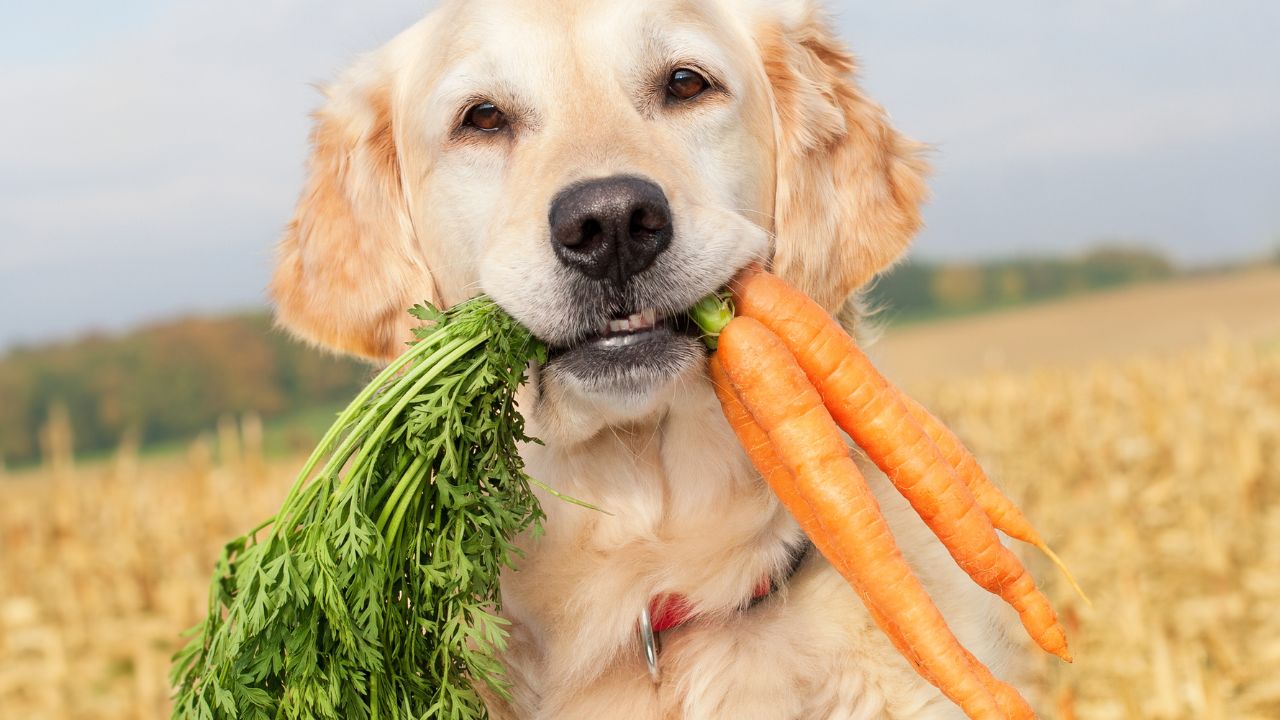
Carrots are low in calories and high in fiber and beta-carotene, which converts to vitamin A. Chewing on raw carrots can also promote dental health by reducing plaque buildup. Serve them raw or steamed, but cut into appropriate sizes to prevent choking.
Green Beans 🌱
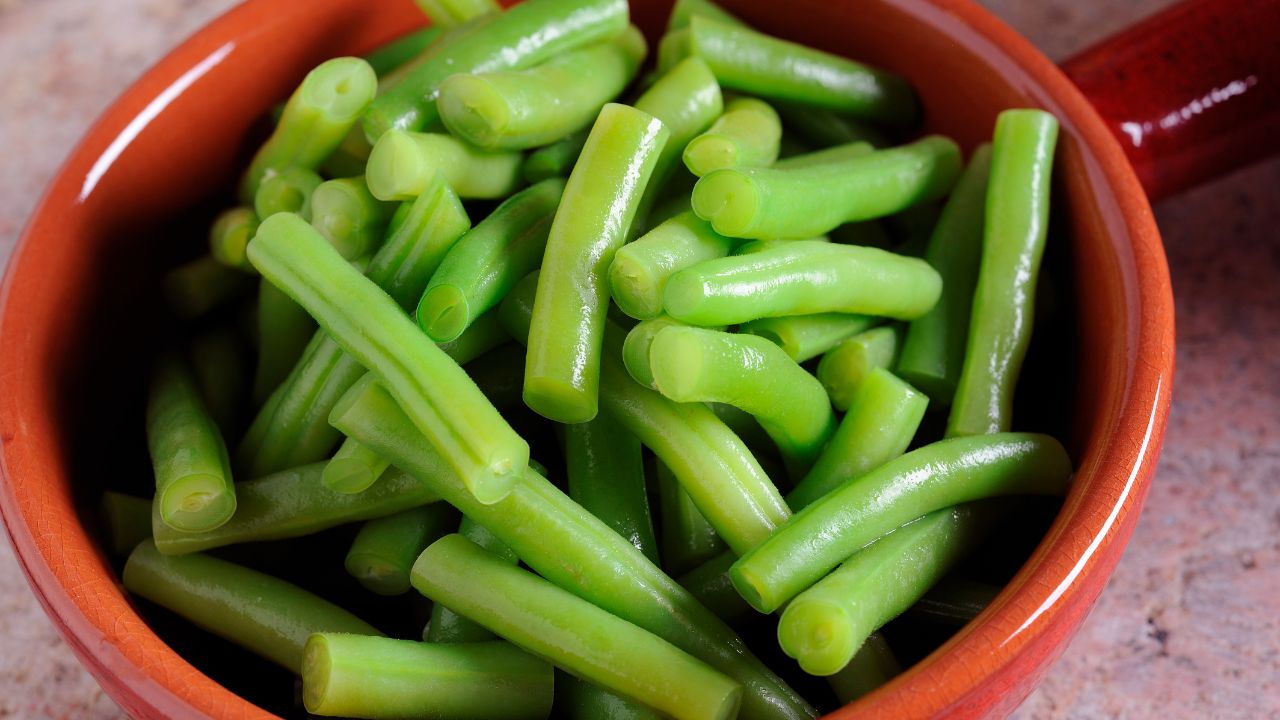
Green beans are a nutritious snack loaded with vitamins and minerals. They’re low in calories and can help dogs feel full, which is beneficial for weight management. Offer them fresh or cooked without seasoning, especially avoiding salt.
Apples 🍎
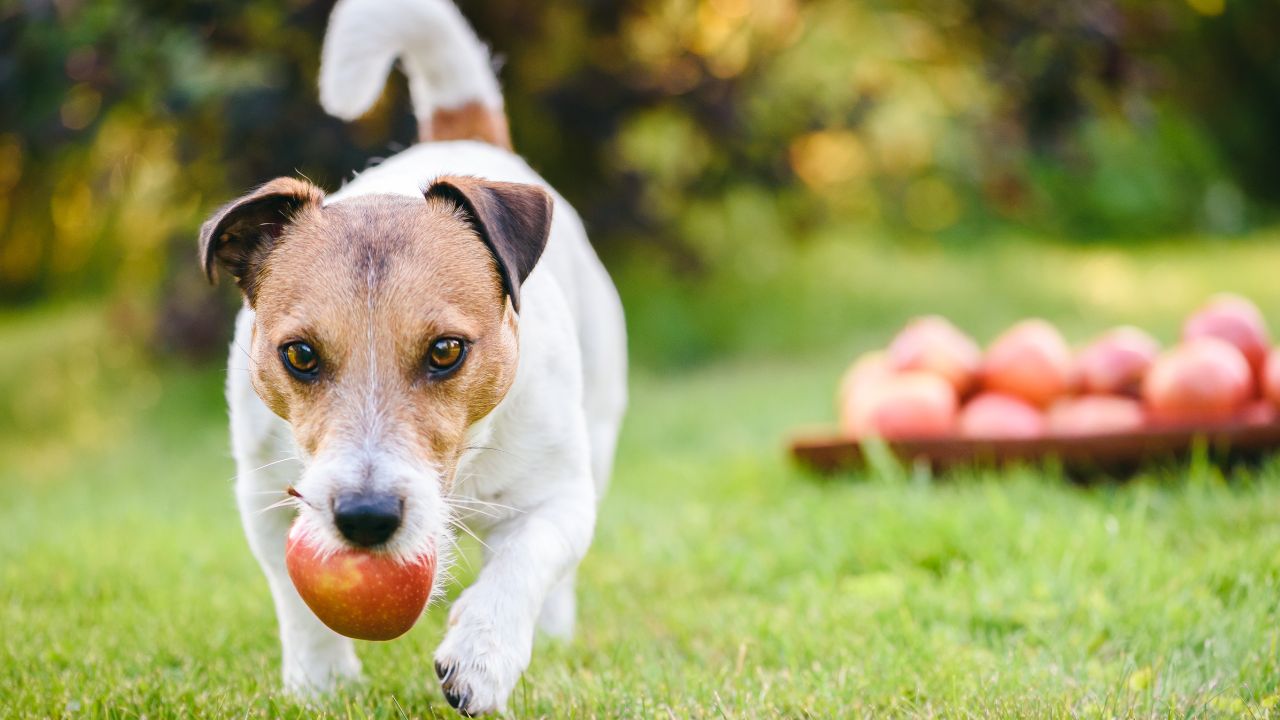
Apples are a crunchy treat rich in vitamins A and C, as well as fiber. They can help clean your dog’s teeth and freshen their breath. Always remove the core and seeds, which contain small amounts of cyanide and can be a choking hazard.
Nutritious Treats in Moderation
Bananas 🍌
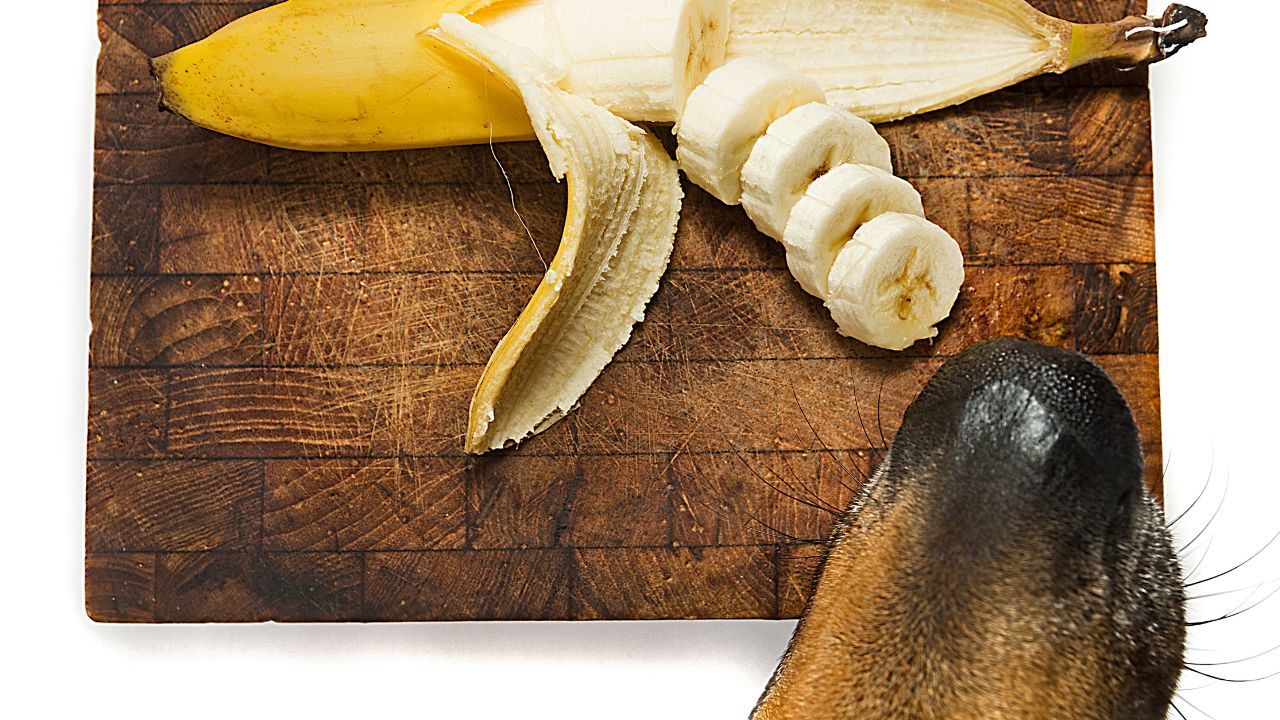
Bananas are packed with potassium, biotin, fiber, and copper. They’re low in cholesterol and sodium but high in sugar, so they should be given as an occasional treat. Mashed bananas can also be used to hide medication.
Eggs 🥚

Cooked eggs are an excellent source of protein, vitamins, and fatty acids that support your dog’s health. They can help settle an upset stomach and contribute to a shiny coat. Always serve eggs fully cooked to eliminate the risk of salmonella or E. coli, and avoid adding salt or spices.
Yogurt 🥛

Plain, unsweetened yogurt with live probiotics can support your dog’s digestive health. Greek yogurt is an excellent choice due to its higher protein and lower lactose content. Avoid yogurts with artificial sweeteners like xylitol and added sugars.
Turkey 🦃
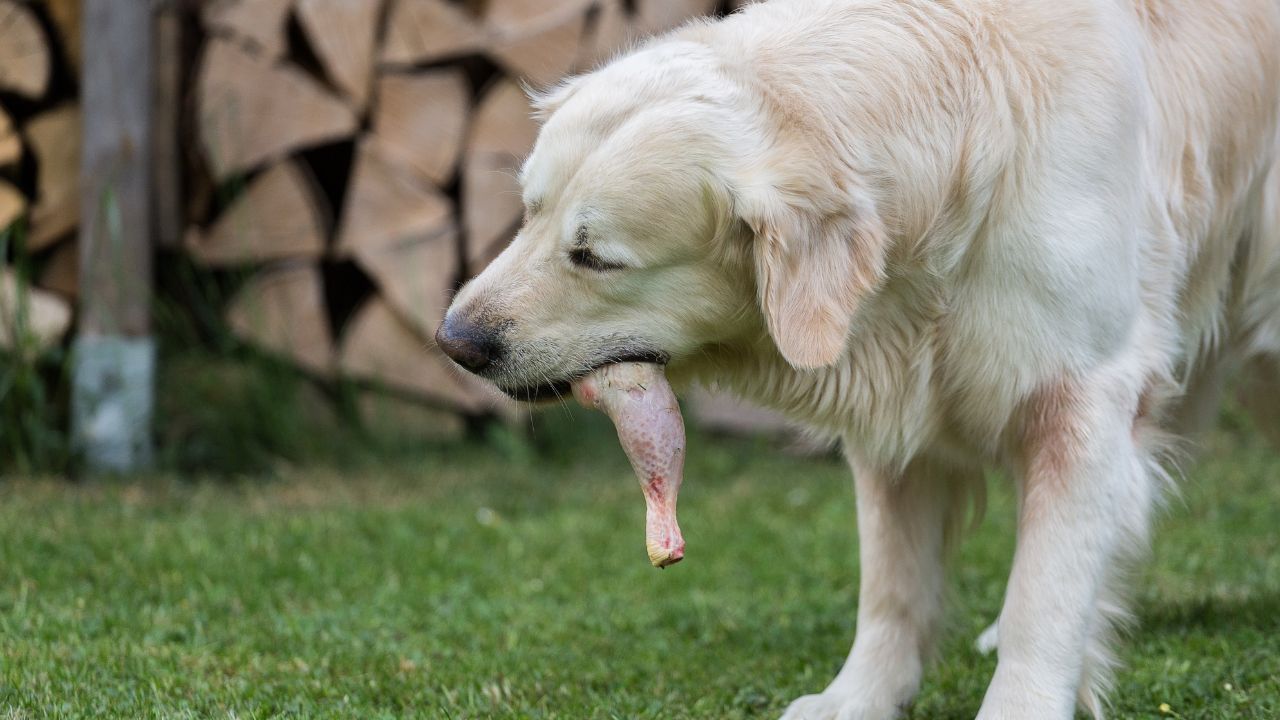
Plain, cooked turkey is a lean protein that’s beneficial for dogs. Remove any excess fat and skin, and ensure there are no bones which can splinter and cause internal damage. Avoid turkey seasoned with garlic, onions, or spices that are toxic to dogs.
Quinoa 🍚

Quinoa is a nutritious grain that’s sometimes included in dog food. It’s high in protein and contains essential amino acids. While generally safe, some dogs may have difficulty digesting it, leading to stomach upset. Introduce it slowly and watch for adverse reactions.
Wheat and Grains 🌾
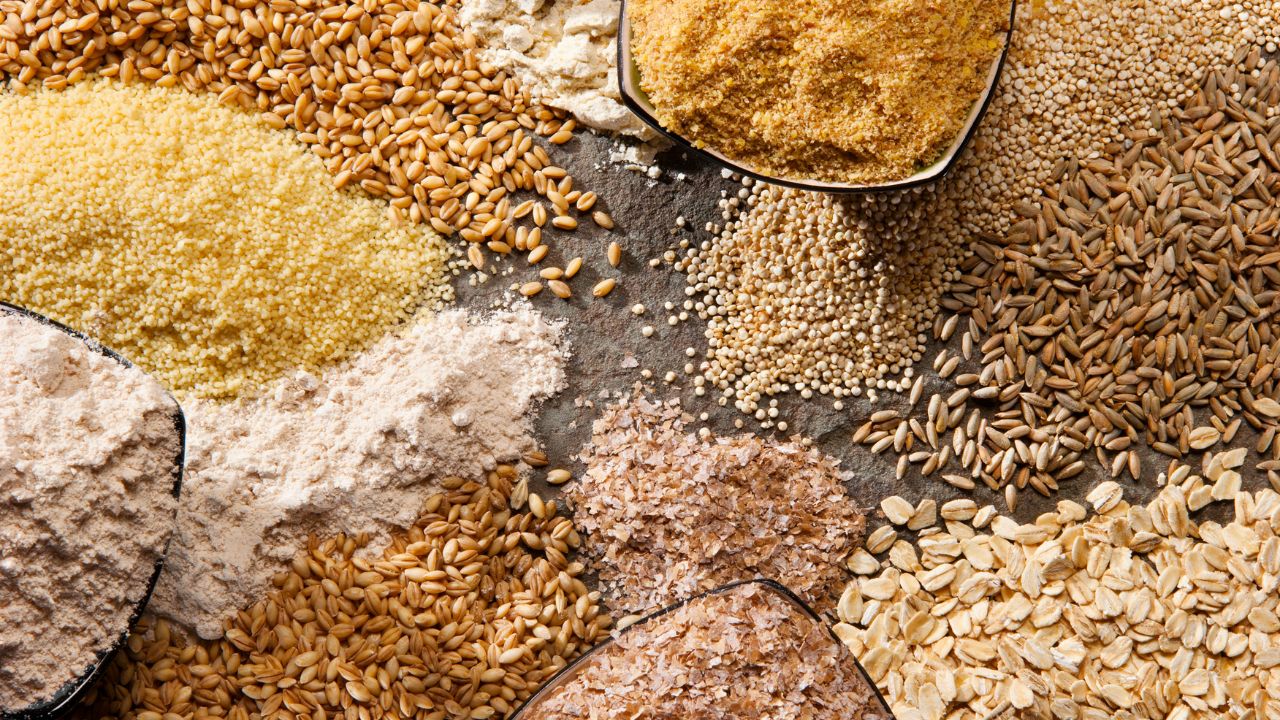
Most dogs can safely consume grains like wheat, oats, and rice, which provide energy and fiber. Whole grains are more nutritious than refined grains. If your dog shows signs of a grain allergy—such as itching, hair loss, or digestive issues—consult your vet for dietary advice.
Safe Snacks with Caution
Peanut Butter 🥜
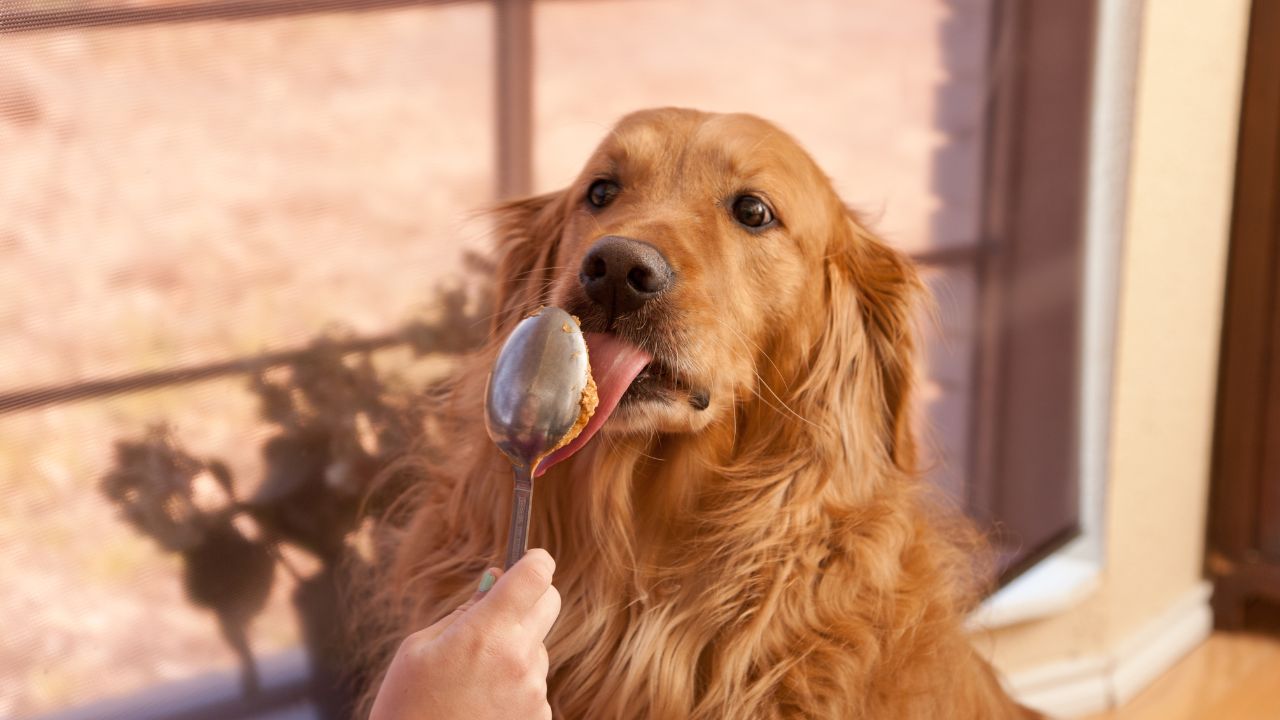
Most dogs adore peanut butter, and it’s generally safe in moderation. It’s a good source of protein and healthy fats. Always check the label to ensure it doesn’t contain xylitol, a sweetener that’s highly toxic to dogs. Opt for unsalted, natural peanut butter without added sugars.
Plain Bread 🍞
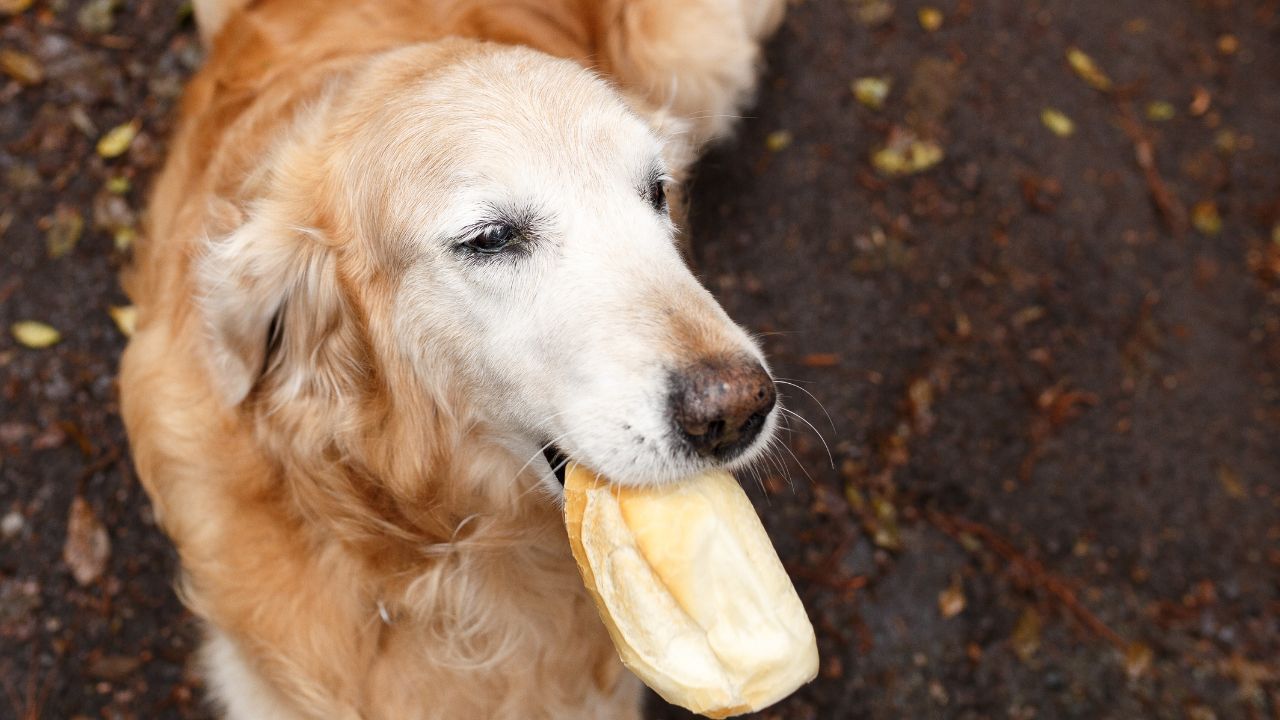
Plain white or whole grain bread is generally safe in small amounts. It doesn’t offer much nutritional value, but it’s not harmful either. Be cautious with breads containing raisins, nuts, or seeds, as these can be toxic or difficult for dogs to digest. Also, avoid giving raw dough, which can expand in the stomach and cause serious issues.
Corn 🌽
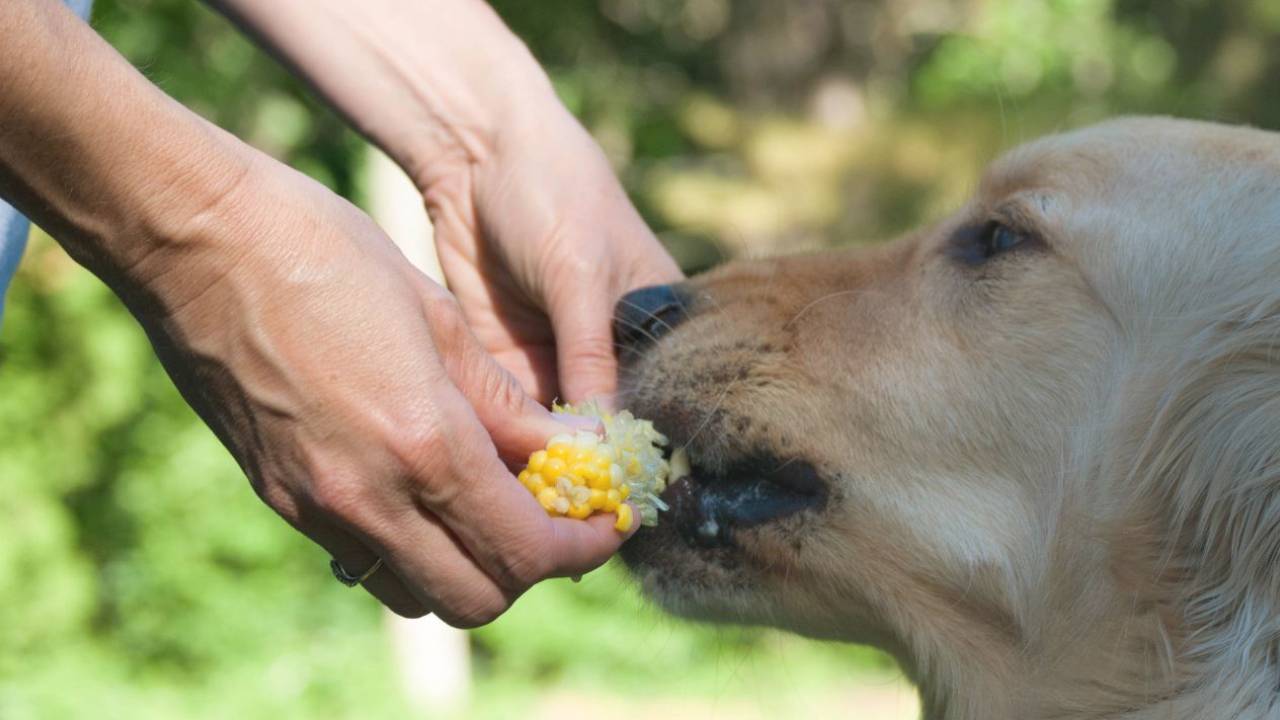
Corn kernels are safe and often included in dog foods as a carbohydrate source. The real danger lies in the cob. Dogs can choke on corn cobs, or they may cause intestinal blockages requiring surgical intervention. If you offer corn, make sure it’s off the cob and unseasoned.
Shrimp 🍤
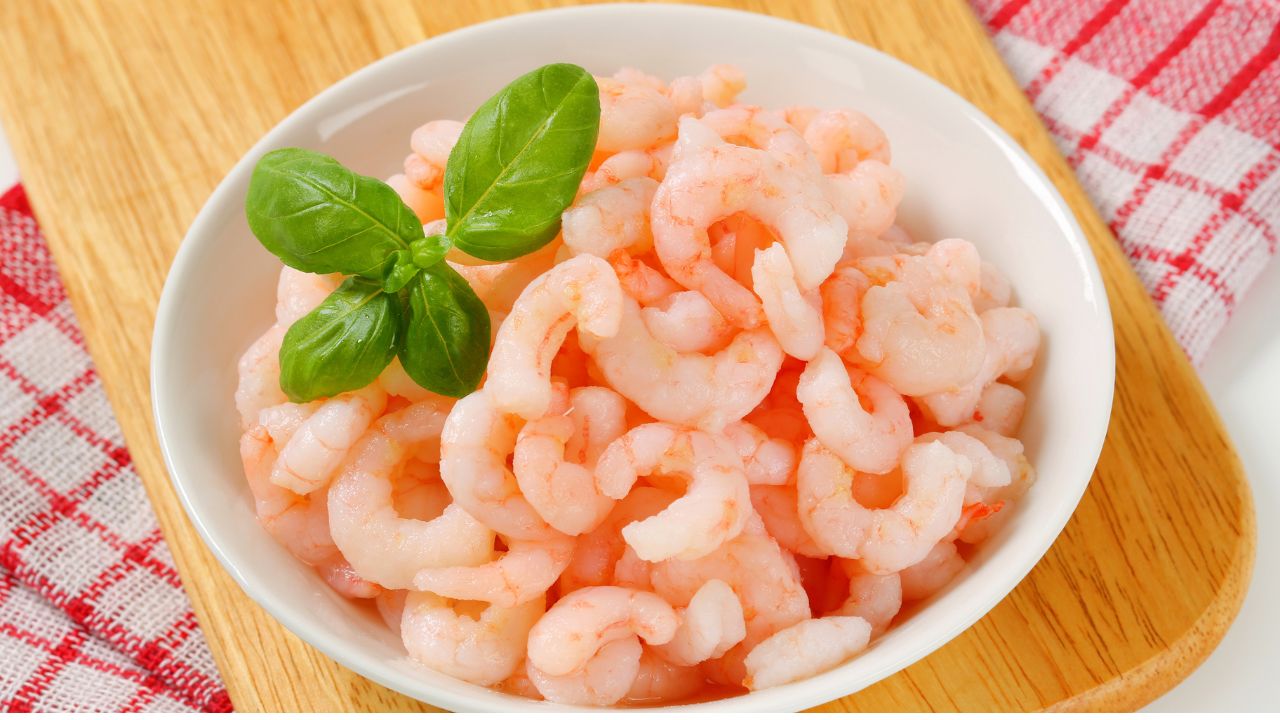
Shrimp is low in fat, calories, and carbohydrates, making it a good protein source. It’s rich in vitamin B12, niacin, and phosphorus. Always serve it cooked and deveined, removing the shell, head, and tail to prevent choking and digestive issues.
Cashews 🥜
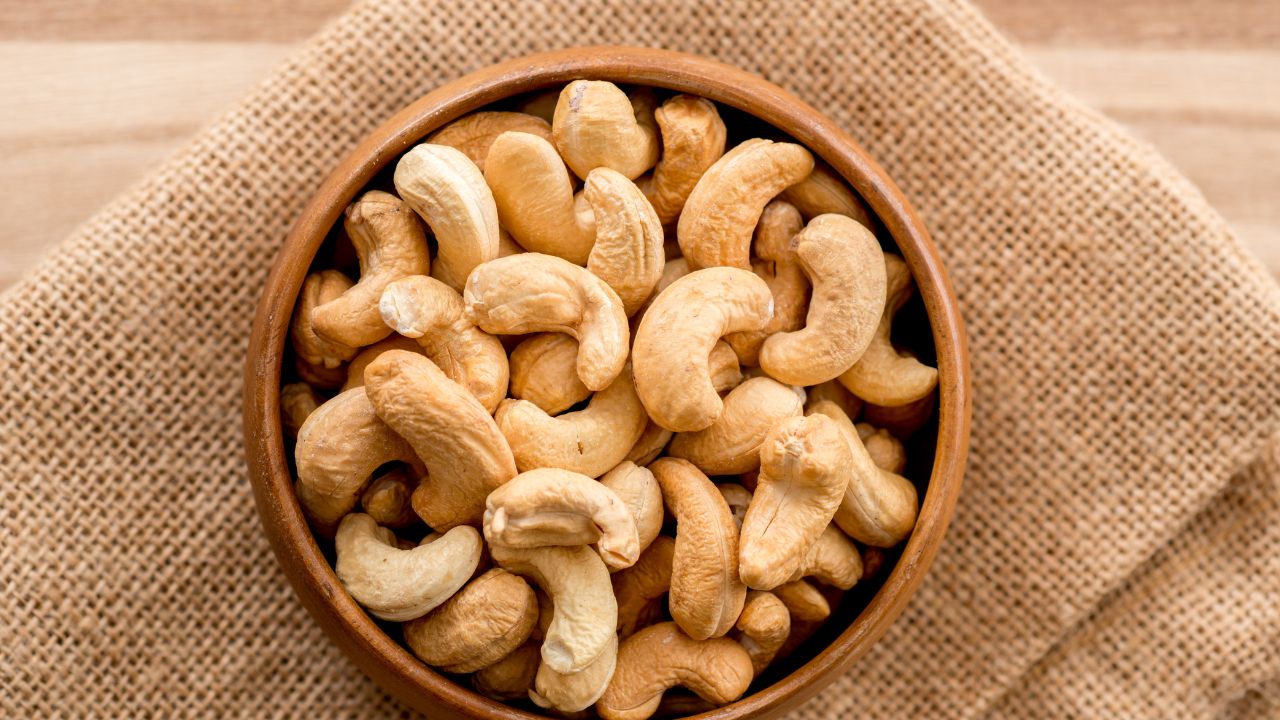
Cashews can be a tasty treat when given sparingly. They’re high in protein and healthy fats but also rich in calories. Always serve them unsalted and roasted to eliminate any potential toxins present in raw nuts. Overfeeding can lead to weight gain or pancreatitis, so moderation is key.
Peanuts 🥜

Plain, unsalted peanuts are safe for dogs when given occasionally. They provide protein and healthy fats but are high in calories. Overfeeding can contribute to obesity and pancreatitis. Also, avoid peanuts coated in salt, sugar, or chocolate.
Occasional Indulgences: Limit These Foods
Cheese 🧀
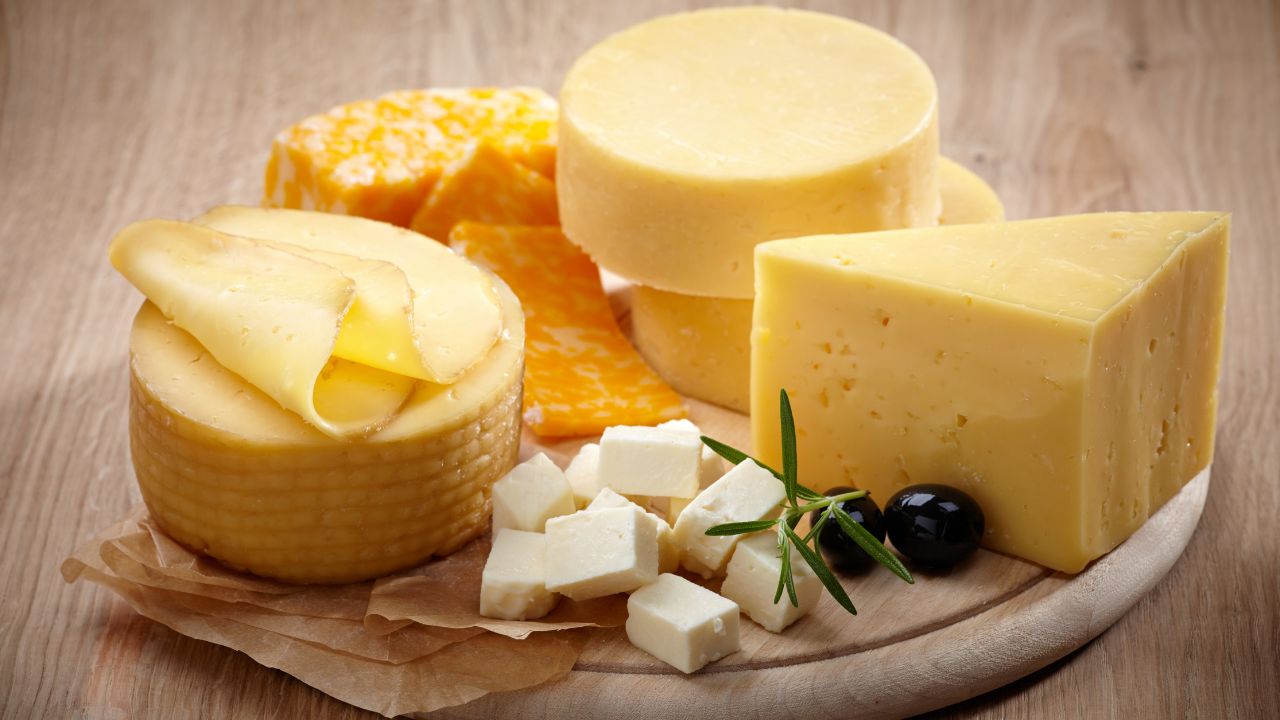
Many dogs love cheese, and it can be a good source of protein and calcium. However, cheese is high in fat and lactose, which some dogs have trouble digesting. Opt for low-fat varieties like mozzarella or cottage cheese and offer small portions to avoid digestive upset or weight gain.
While many dogs enjoy it as a treat, cheese is high in fat and can cause digestive issues in dogs that are lactose intolerant. Opt for low-fat options and serve in small amounts to avoid upsetting your dog’s stomach or leading to weight gain. — Mykhailo Ozmenchuk, DVM
Honey 🍯

In small amounts, honey can be a sweet treat packed with vitamins and antioxidants. It may even help with minor allergies due to trace pollen content. However, honey is high in sugar, so overfeeding can contribute to obesity and dental issues. Raw honey should not be given to puppies or dogs with compromised immune systems.
Ham 🍖
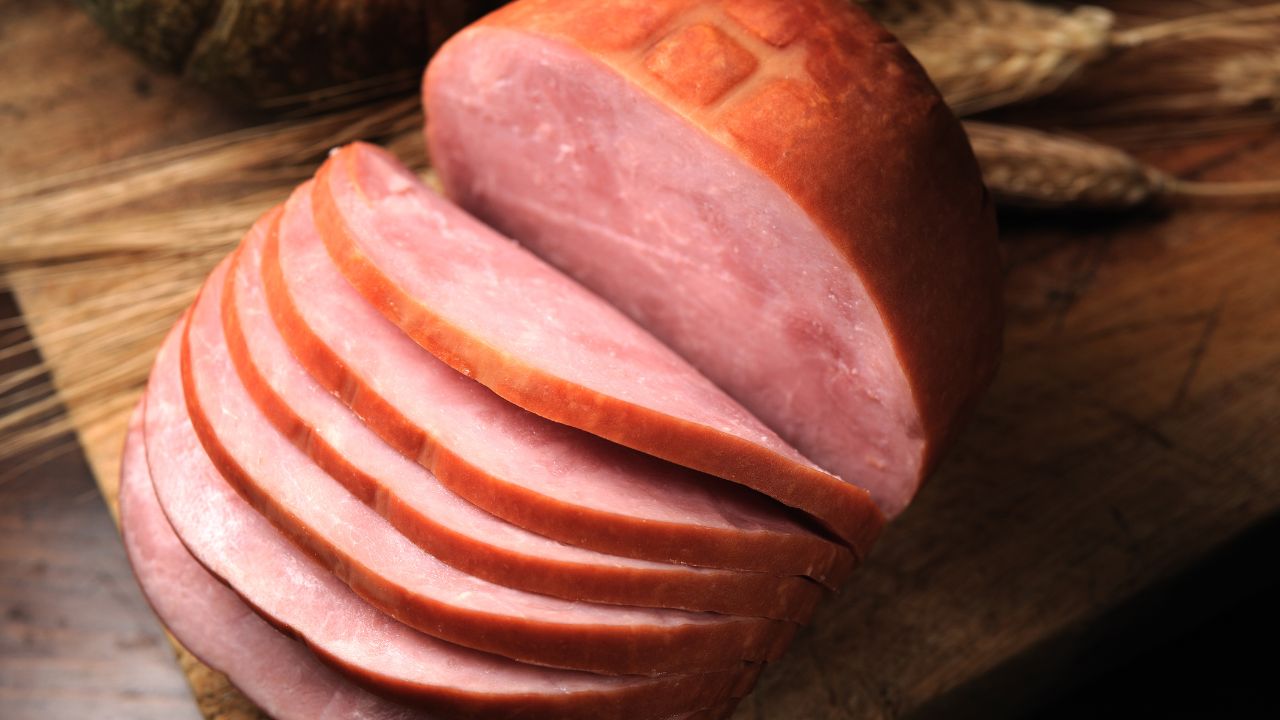
Ham is high in sodium and fat, making it unsuitable for dogs. Excessive salt can lead to increased thirst and urination and, in severe cases, sodium ion poisoning. High-fat foods like ham can trigger pancreatitis, a potentially life-threatening condition. Opt for lean meats without added salt or seasoning.
Popcorn 🍿
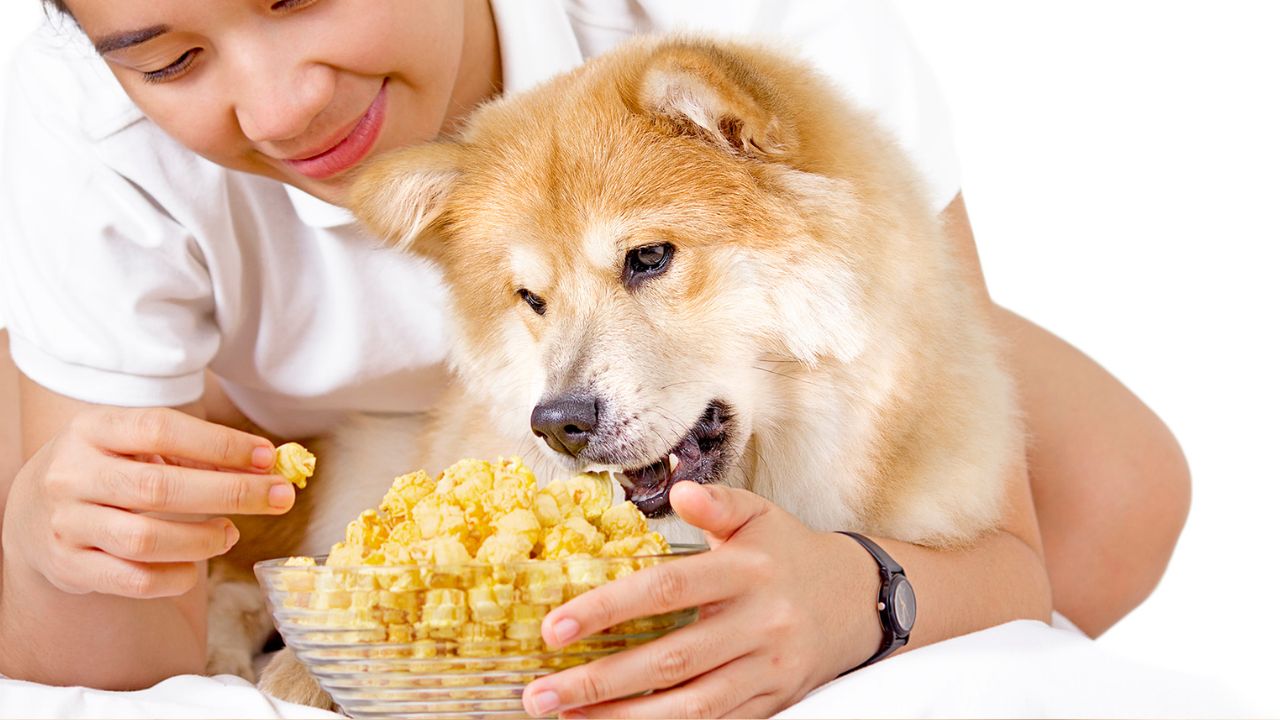
Air-popped, plain popcorn can be a fun, low-calorie treat. It contains minerals like magnesium and zinc, beneficial for dogs. However, unpopped kernels can cause dental issues or pose a choking hazard, and flavored popcorn often contains additives harmful to dogs.
Oranges 🍊

Oranges are safe for dogs in small quantities, providing vitamin C, potassium, and fiber. However, the citrus flavor isn’t appealing to all dogs, and the high sugar content means they should be given sparingly. Remove all seeds and peel them to prevent digestive issues.
Coconut 🥥

Small amounts of coconut flesh can be a refreshing treat, providing antioxidants and lauric acid, which may help combat bacteria. However, coconut oil and milk are high in fats and calories, which can lead to weight gain or digestive issues if consumed in large quantities. Also, the hairy shell can pose a choking risk.
The benefit of coconut oil is not really proven. It might work, or it might not. Go slow, go low. Be careful with potential GI upset, pancreatitis, etc. — Mykhailo Ozmenchuk, DVM
Cinnamon 🍂
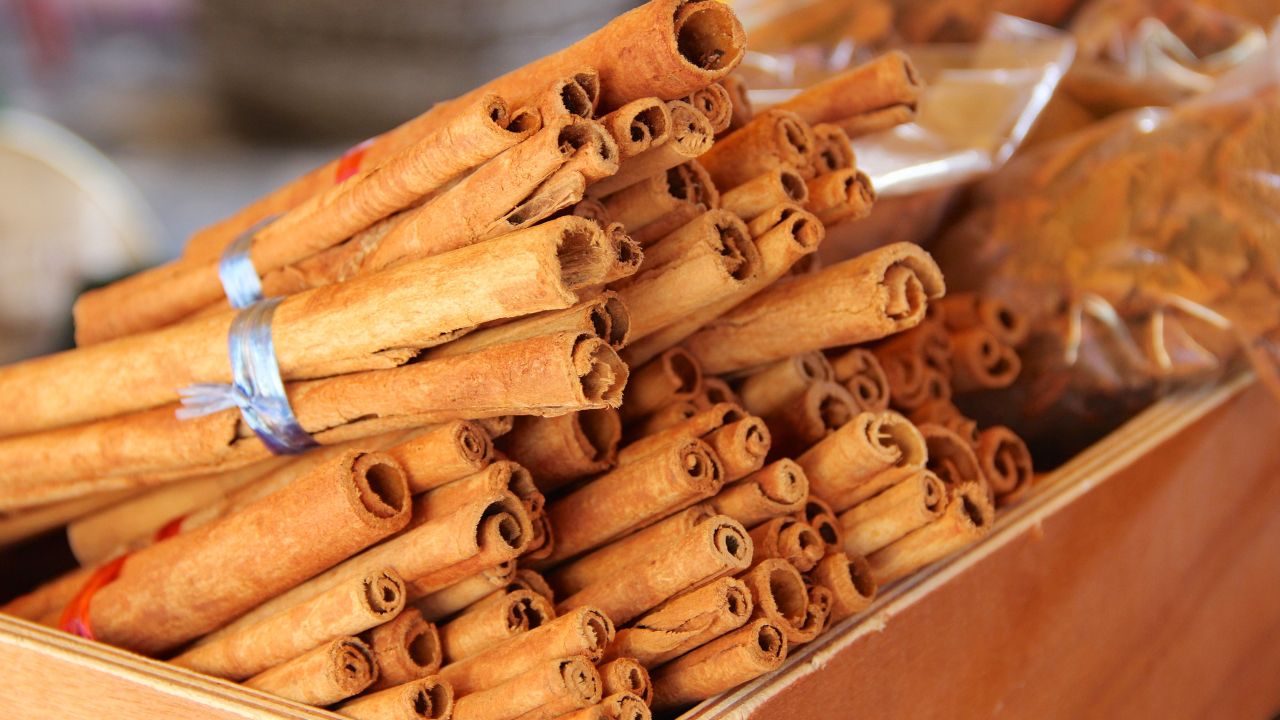
Cinnamon isn’t toxic to dogs, but it can cause irritation in their mouths and digestive systems. Inhaling cinnamon powder can lead to coughing, choking, or difficulty breathing. Large amounts may lower blood sugar too much, leading to dizziness or even liver disease over time.
Keeping your dog safe involves more than just knowing what foods are safe—creating a secure space for play and rest is essential. Check out our review of the best dog playpens for a safe, fun environment where your pup can thrive!
Foods to Avoid or Use with Extreme Care
Almonds 🌰

While almonds aren’t toxic to dogs, they’re not easily digested and can lead to gastrointestinal upset like vomiting or diarrhea. Their shape and size also pose a choking hazard, especially for smaller breeds. Additionally, salted or flavored almonds contain additives that aren’t good for your pup.
Milk 🥛

Many dogs have difficulty digesting lactose in milk, leading to stomach upset, diarrhea, and gas. While small amounts may not cause severe issues, it’s generally safer to provide fresh water and avoid dairy products unless they’re specifically designed for dogs.
Tuna 🐟

Tuna is safe in small amounts and offers protein and omega-3 fatty acids. However, due to potential mercury exposure, it’s best to limit tuna to occasional treats. Choose canned tuna in water without added salt, and avoid giving your dog tuna salad or other preparations with added ingredients.
Pork 🐖
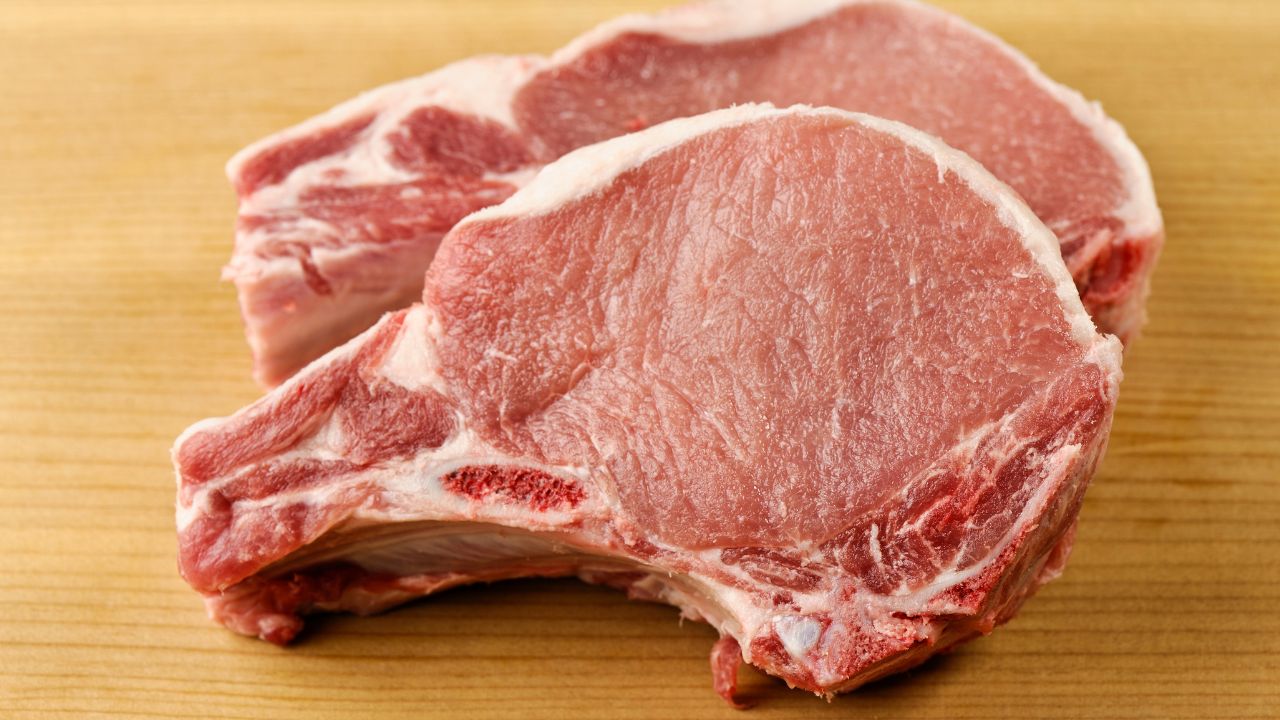
Cooked, unseasoned pork is safe and offers a rich source of amino acids. It’s easily digestible and can be a good protein option. Avoid raw pork due to the risk of parasites, and stay clear of processed pork products like bacon and sausage, which are high in salt and preservatives.
Ice Cream 🍦
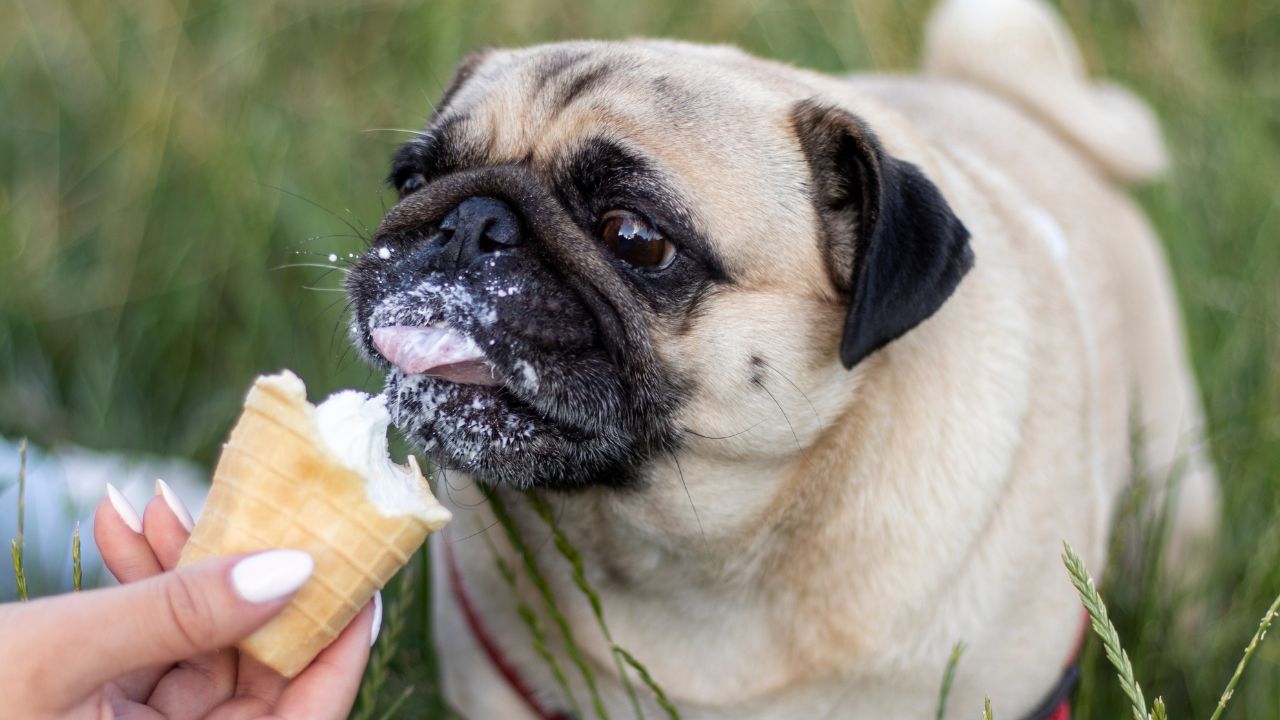
While it might be tempting to share your ice cream cone, it’s best not to. Most dogs are lactose intolerant, and ice cream is high in sugar and fat. Some ice creams also contain xylitol or chocolate, both toxic to dogs. Consider offering frozen dog-safe fruits like blueberries as a cool treat instead.
Training and safety go hand in hand when caring for your dog. Discover our recommendations for the best shock collars to support effective, humane training
Dangerous and Toxic Foods for Dogs
Chocolate 🍫

Chocolate is a well-known hazard for dogs. It contains theobromine and caffeine, which dogs metabolize slowly. This can lead to toxic buildup, causing symptoms like rapid breathing, vomiting, diarrhea, and even seizures. Dark chocolate and unsweetened baking chocolate are particularly dangerous due to higher theobromine levels.
Garlic 🧄

Garlic is toxic to dogs and should be avoided. It contains thiosulfates, which can damage red blood cells and lead to anemia. Symptoms may include weakness, rapid breathing, and lethargy. Even garlic powder and supplements are unsafe, so keep all forms of garlic out of your dog’s diet.
Macadamia Nuts 🌰
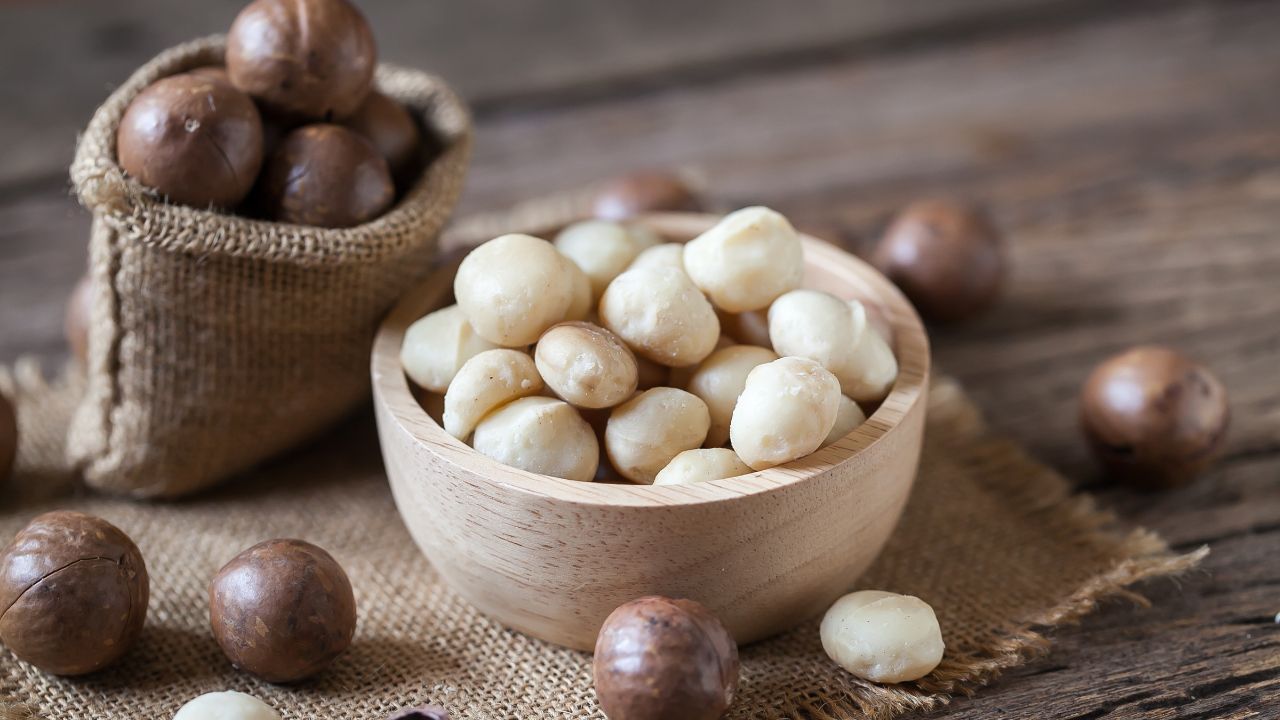
Macadamia nuts are highly toxic to dogs, even in small amounts. Ingestion can lead to weakness, overheating, vomiting, tremors, and depression. The exact cause of toxicity is unknown, but symptoms usually appear within 12 hours and can last up to 48 hours. Keep these nuts far out of reach.
When considering human foods for dogs, remember that even common ingredients can have surprising effects on canine health. As a licensed veterinarian, I always advise caution—introduce new foods slowly and observe your dog’s reactions to avoid unwanted issues. — Mykhailo Ozmenchuk, DVM
Raw Dough
Raw dough made with yeast can expand in your dog’s stomach, causing severe pain and bloating. In extreme cases, it can lead to a twisted stomach or gastric dilation-volvulus, a life-threatening condition. Additionally, the fermentation process produces ethanol, which can cause alcohol poisoning in dogs.
Wrapping It Up
Sharing a snack with your dog can be a joyful experience, but it’s essential to make informed choices to keep your furry friend healthy. Sharing a snack with your dog is fun, but picking the safe kind keeps tails wagging without the vet visits. And if a cat patrols your couch too, healthy treats for cats bring the same tasty balance to your whiskered boss.
Remember that treats should only make up about 10% of your dog’s daily caloric intake to maintain a balanced diet.
When in doubt, consult your veterinarian for personalized advice, especially if your dog has existing health conditions or dietary restrictions. With the right knowledge, you can safely indulge your pet and enjoy those happy tail wags and grateful gazes.

FAQs
What are the signs that my dog has eaten something toxic?
Watch for symptoms like vomiting, diarrhea, drooling, tiredness, clumsiness, or seizures. If you see any of these signs, call your vet right away.
Can feeding my dog human food lead to bad habits?
Yes, regularly giving your dog food from your plate can cause begging and mess up their diet. Sticking to a consistent feeding routine is best.
How much human food can I safely give my dog?
Keep treats, including human food, to less than 10% of your dog’s daily calories to make sure they get a balanced diet.
Is it okay to use human food as training treats?
Yes, as long as the foods are safe for dogs and given in small amounts. Choose low-calorie options like small pieces of cooked chicken or certain fruits and veggies.
Can my dog eat chicken bones?
No, it’s not safe for dogs to consume chicken bones. They can easily splinter and cause blockages or tears in the digestive tract.
Sources:
Which Fruits Can Dogs Eat? PetMD
Schmid, Renee. Onion, Garlic, Chive and Leek Toxicity in Dogs
AKC Staff, Fruits and Vegetables Dogs Can or Can’t Eat, American Kennel Club
People Foods to Avoid Feeding Your Pets, ASPCA
AKC Staff, People Foods Dogs Can and Can’t Eat, American Kennel Club
Wagwalking. Macadamia Nuts Poisoning


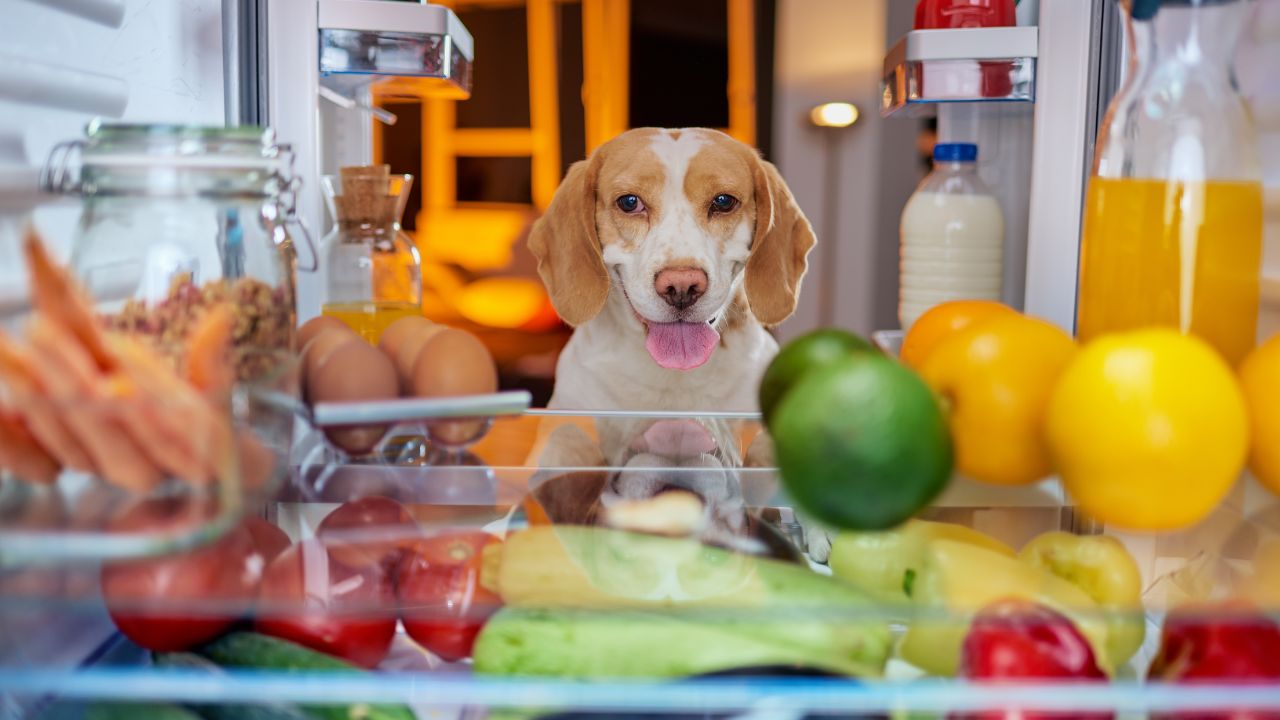


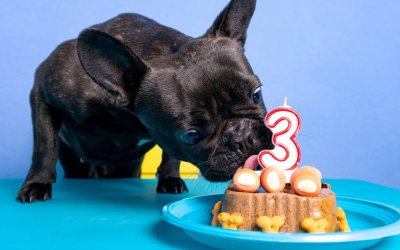
Thanks for the reminder! I’ve had a couple of close calls with my dog trying to snag my snacks. 🍫🐶
Our Lab is a foodie. I’ll make sure she never gets her paws on grapes, garlic, or onions. Thanks for the info!